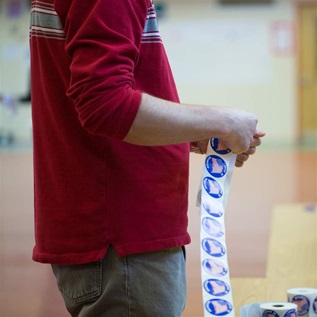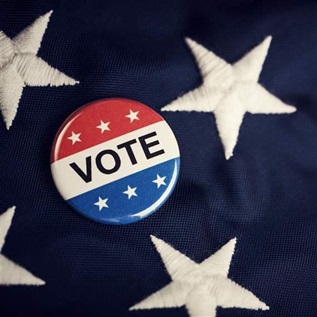Voter Registration in Four States
For decades, election officials have faced the challenge of processing a wave of voter registration forms immediately prior to a presidential election. Data from four states—Colorado, Florida, Maryland, and Virginia—clearly show that these election offices must deal with a huge spike in voter registration applications every four years.
Voters generally register in one of two ways. One is at a state agency like a motor vehicles office or a public assistance agency where, per the National Voter Registration Act of 1993 (NVRA), people are offered the opportunity to register to vote. The data demonstrate while these registration numbers fluctuate a little, they do not significantly increase or decrease at any particular time, including before a presidential election.
People also choose to register to vote directly with their local election office, either by mail, in person, or through a third-party registration group. These registrations are greatly driven by the election calendar and an overwhelming number of them are paper forms. As voter registration deadlines and Election Day approach, interest in the election intensifies as does that activity of third-party registration groups.
These data show the unique business cycle of an elections office, where every four years there is an explosion of voter registration activity. Officials plan for staffing and resources that are sufficient for 47 months out of the 48 month cycle and then face tremendous challenges during that one month before a presidential election registration deadline. Finding the time and labor to process these forms while also conducting the many other activities necessary to prepare for an election is a daunting task—and one that election officials will no doubt face again this fall.
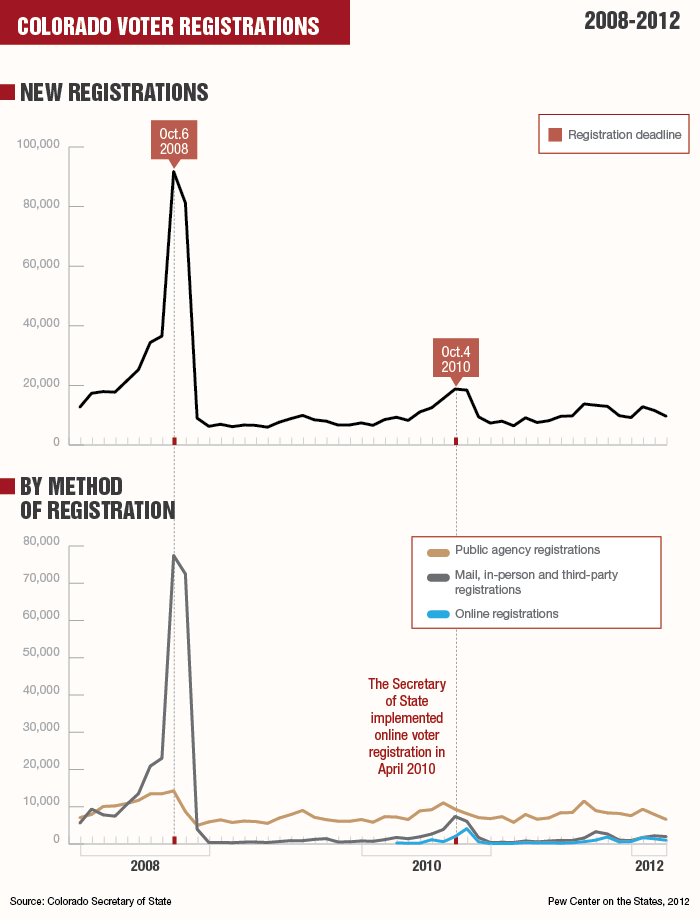
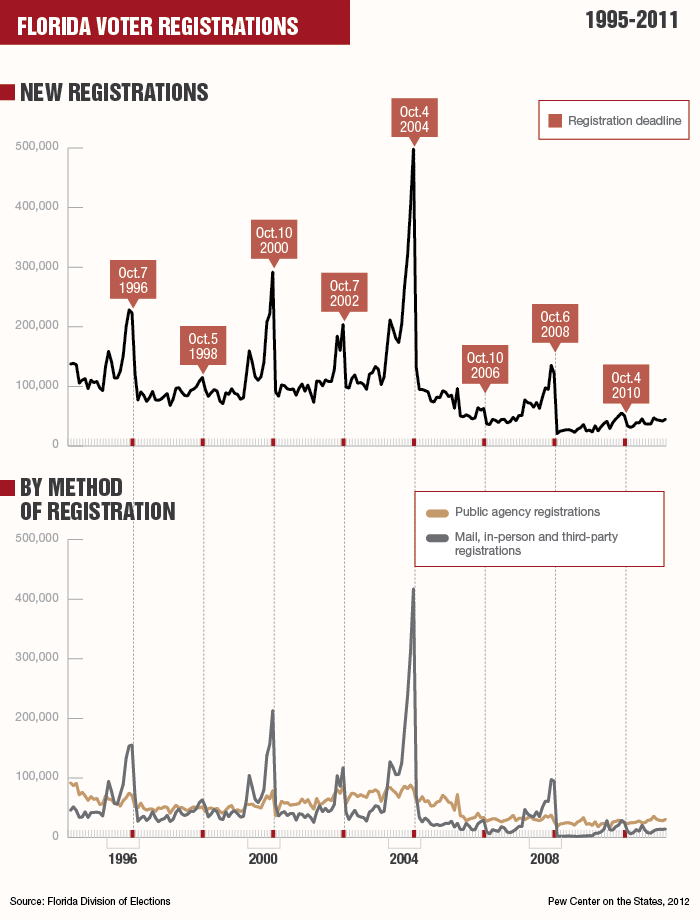
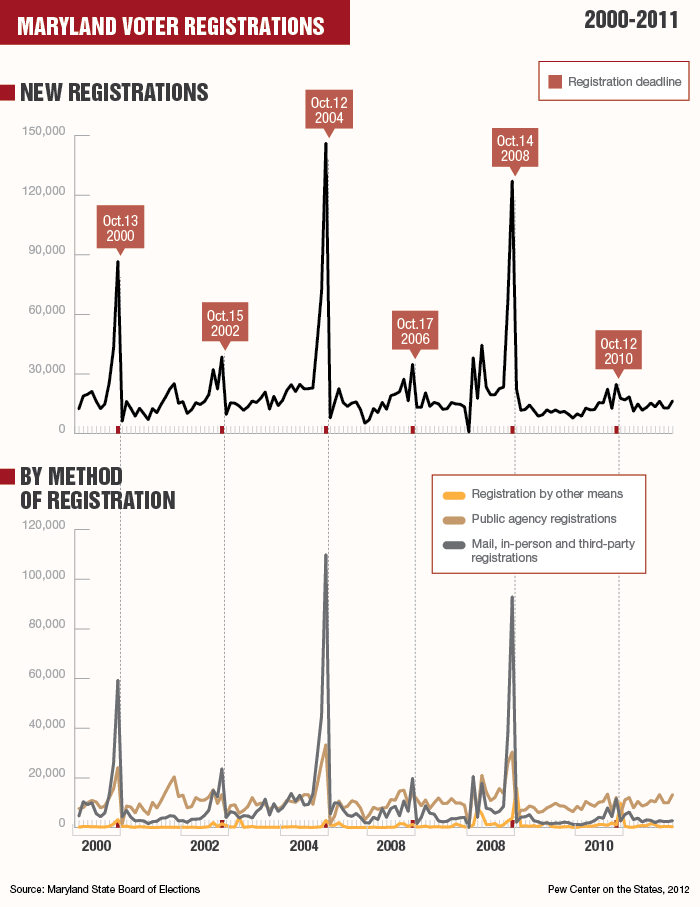
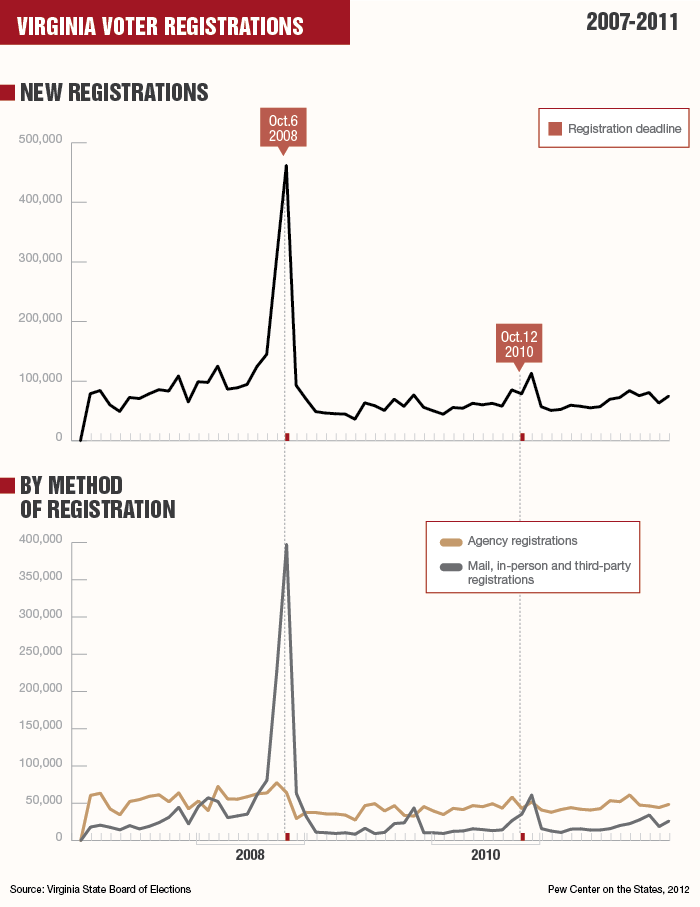
Methodology
The monthly registration data for Florida, Virginia, and Maryland is available at each state's election website. Colorado's new registration data was provided directly to The Pew Center on the States by the Colorado election office.
For each state, the new registration data was divided according to the method by which the new registration was received. The number and types of subcategories differed between states. In order to simplify the data, we organized the data from each state into four larger categories: agency registrations, mail, in-person, and third party registrations, online registrations, and other. Colorado is the only state in this study with online registrations and Maryland is the only state where the other category was used.
Agency registrations refers to new registrations submitted through non-election related government agencies, including motor vehicle offices, public assistance agencies, military recruiting offices, and public libraries. Mail, in-person, or third party registrations include new registrations submitted, usually by paper, through methods driven by the election cycle, such as individuals registering with their election office, or through a third-party registration group. Online registration refers to new registrations submitted online.
For more information about how state subcategories were grouped into the four larger categories, please see the table below:
| State | Agency Registrations | Election-Driven Registrations | Other Registrations | Online Registrations |
| Colorado | Department of Revenue, military recruiters, agencies mandated by the National Voter Registration Act (NVRA), agencies serving people with disabilities, all other agencies |
In person, mail, third-party voter registration drives, Federal Postcard Application (FPCA) | Online registration | |
| Florida | Department of Highway Safety and Motor Vehicles, recruiters, public assistance agencies, disability agencies, public libraries |
In person, mail, third-party voter registration drives |
||
| Maryland | Motor vehicle administration, military recruiters, high school, mandated agency, disabled/elderly, other state agency, designated state agencies, social services, NVRA by mail |
In person, mail, third-party voter registration drives (volunteer), from another board, Federal Postcard Application (FPCA) |
Other | |
| Virginia | Department of Motor Vehicles, military recruiters, public assistance, disability offices, discretionary agencies |
In person, mail, third-party voter registration drives (federal form and national form) |


